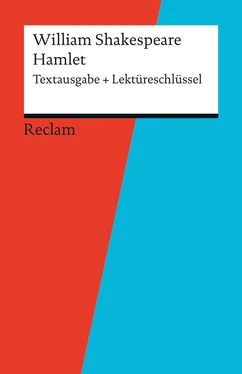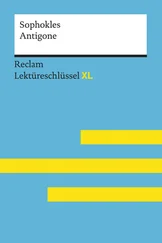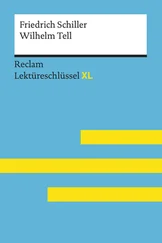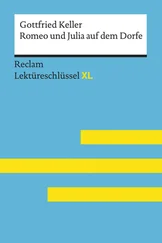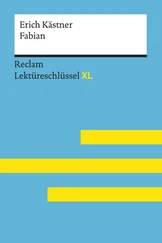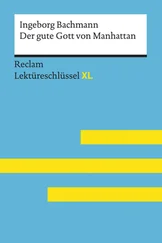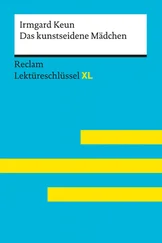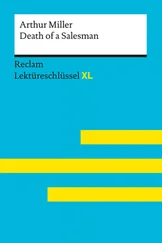Do you consent we shall acquaint him with it,
As needful in our loves, fitting our duty?
MARCELLUS. Let’s do’t, I pray, and I this morning know
Where we shall find him most convenient.
Exeunt.
[16] Scene 2
[The hall of the castle]
Flourish; enter Claudius, King of Denmark, Gertrude the Queen, Council: as Polonius and his son Laertes, Hamlet, [clad in black,] and others, among them Voltemand and Cornelius; Attendants.
KING. Though yet of Hamlet our 17dear brother’s death
The memory be green, and that it us befitted
To bear our hearts in grief, and our whole kingdom
To be contractedin one brow of woe,
Yet so far hath discretionfought with nature
That we with wisest sorrow think on him,
Together with remembrance of ourselves:
Therefore our sometime sister 18, now our queen,
Th’ imperial jointressto this warlike state,
Have we, as ’twerewith a defeatedjoy,
With an auspiciousand a droppingeye,
With mirth in funeral and with dirgein marriage,
In equal scale weighing delight and dole,
[17] Taken to wife; nor have we herein barred
Your better wisdoms, which have freelygone
With this affair along 19– for all, our thanks.
Now follows that you know young Fortinbras,
Holding a weak supposalof our worth,
Or thinking byour late dear brother’s death
Our state to be disjointand out of frame,
Co-leaguèdwith this dream of his advantage,
He hath not failed to pesterus with message
Importingthe surrender of those lands
Lost by his father, with all bandsof law,
To our most valiant brother – so much for him.
Now forourself, and for this time of meeting,
Thus much the business is: We have here writ
To Norway, uncle of young Fortinbras –
Who, impotentand bedrid, scarcely hears
Of this his nephew’s purpose – to suppress
[18] His further gaitherein, in that the levies,
The lists, and full proportionsare all made
Out of his subject. And we here dispatch
You, good Cornelius, and you, Voltemand,
Forbearers of this greeting to old Norway,
Giving to you no further personal power
To business with the King, more than the scope
Of these dilatedarticles allow.
[Hands over papers.]
Farewell, and let your haste commendyour duty.
| CORNELIUS. VOLTEMAND. |
|
|
In that and all things, will we show our duty. |
KING. We doubt it nothing, heartily farewell.
Exeunt Voltemand and Cornelius.
And now, Laertes, what’s the news with you?
You told us of some suit, what is’t, Laertes?
You cannot speak of reasonto the Dane
And lose your voice; what wouldstthou 20beg, Laertes,
That shall not be my offer, not thy asking?
The head is not more nativeto the heart,
The hand more instrumentalto the mouth,
[19] Than is the throne of Denmark to thy father.
What wouldst thou have, Laertes?
LAERTES. My dreadlord,
Your leaveand favour to return to France,
From whence though willingly I came to Denmark
To show my duty in your coronation,
Yet now, I must confess, that duty done,
My thoughts and wishes bend again toward France
And bow them to your gracious leave and pardon.
KING. Have you your father’s leave? What says Polonius?
POLONIUS. ’A hath, my lord, wrung from me my slow leave
By laboursome petition, and at last
Upon his will I sealed my hard consent;
I do beseechyou, give him leave to go.
KING. Take thy fair hour, Laertes, time be thine,
And thy best gracesspend it at thy will. –
But now, my cousinHamlet, and my son …
HAMLET. [Aside]. A little more than kin, and less than kind. 21
KING. How is it that the clouds still hang on you?
HAMLET. Not so, my lord, I am too much in the “ son”.
[20] QUEEN. Good Hamlet, cast thy nightedcolour off,
And let thine eye look like a friend on Denmark;
Do not for ever with thy vailèdlids
Seek for thy noble father in the dust,
Thou know’st ’tis common, all that lives must die,
Passing through nature to eternity. 22
HAMLET. Ay, madam, it is common.
QUEEN. If it be,
Why seems it so particular with thee?
HAMLET. Seems, madam! Nay, it is, I know not “seems”.
’Tis not alone my inkycloak, good mother,
Nor customary suits of solemn black,
Nor windy suspirationof forced breath,
No, nor the fruitfulriver in the eye,
Nor the dejected haviourof the visage,
Together with all forms, modes, shapesof grief,
That can denoteme truly. These indeed seem,
For they are actionsthat a man might play,
But I have that within which passesshow –
These but the trappingsand the suits of woe.
[21] KING. ’Tis sweet and commendablein your nature, Hamlet,
To give these mourning duties to your father,
But you must know your father lost a father,
That father lost, lost his, and the survivor bound
In filialobligation for some term
To do obsequioussorrow. But to persever
In obstinate condolementis a course
Of impious stubbornness, ’tis unmanly grief,
It shows a will most incorrectto heaven,
A heart unfortified, a mind impatient,
An understanding simple and unschooled.
For what we know must be and is as common
As any the most vulgarthing to sense,
Why should we in our peevishopposition
Take it to heart? Fie, ’tis a faultto heaven,
A fault against the dead, a fault to nature,
To reason most absurd, whose common theme
Is death of fathers, and who still hath cried,
[22] From the first corse 23till hethat died to-day,
“This must be so“ … We pray you, throw to earth
This unprevailingwoe, and think of us
As of a father – for let the world take note,
You are the most immediate to our throne, 24
And with no less nobilityof love
Than that which dearest father bears his son,
Do I imparttoward you … For your intent
In going back to schoolin Wittenberg 25,
It is most retrogradeto our desire,
And we beseech you, bend you to remain
Here in the cheer and comfort of our eye,
Our chiefest courtier, cousin, and our son.
QUEEN. Let not thy mother lose her prayers, Hamlet:
I pray thee, stay with us, go not to Wittenberg.
HAMLET. I shall in all my bestobey you, madam.
KING. Why, ’tis a loving and a fair reply,
Be as ourself in Denmark. – Madam, come,
This gentle and unforced accord of Hamlet
Sits smiling tomy heart, in gracewhereof,
No jocund healththat Denmark drinks to-day
[23] But the great cannon to the clouds shall tell,
And the king’s rousethe heaven shall bruitagain,
Re-speaking earthly thunder; come away.
Flourish, exeunt all but Hamlet.
HAMLET. O, that this too too sulliedflesh would melt,
Thawand resolveitself into a dew,
Or that the Everlastinghad not fixed
His canon’gainst self-slaughter! 26O God, God,
How weary, stale, flat, and unprofitable
Seem to me all the usesof this world!
Fie on’t, ah fie, ’tis an unweededgarden
That grows to seed, things rankand gross in nature
Possess it merely. That it should come thus,
But two months dead, nay, not so much, not two, 27
So excellent a king, that was tothis
Hyperionto a satyr, so loving to my mother,
[24] That he might not beteemthe winds of heaven
Visit her face too roughly – heaven and earth,
Must I remember? Why, she would hang on him
As if increase of appetite had grown
By what it fed on, and yet within a month,
Let me not think on’t … frailty, thy name is woman!
Читать дальше
